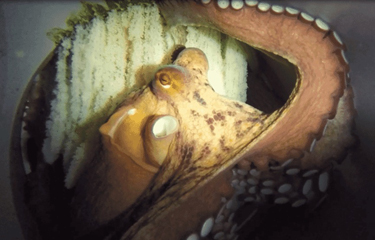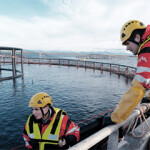Animal rights activists protest Nueva Pescanova’s proposed octopus farm in Spain

A group of animal rights activists gathered in Madrid, Spain, on 21 May to protest Nueva Pescanova’s proposed octopus farm the Canary Islands.
Nueva Pescanova submitted plans to build the world’s first commercial octopus farm in Puerto Las Palmas, on the island of Gran Canaria, in 2022. The company spent eight years working to develop a method to farm octopus, and has developed a method that successfully raised five generations of O. vulgaris octopus in a test facility.
The proposed farm would cost EUR 65 million (USD 70.3 million) occupy 4,000 square meters and could farm 3,000 metric tons of octopus annually.
According to the Associated Press, “a few dozen” people assembled to voice concerns over farming octopus over concerns about the species’ predatory nature.
“It is similar to imprisoning tigers together. They will prey on one another and will also attempt to escape due to their high intelligence and adeptness,” protest spokesperson Jaime Posada told the AP.
Nueva Pescanova Aquaculture Director Roberto Romero said that octopus farmed in captivity behave differently, and that animal welfare has been a part of the company’s research and plans since the beginning.
“It is not possible to grow any [anima] species in the European Union without respecting their welfare conditions. It is the standard, and our group does nothing but comply with guidelines and legislations,” he said.
Opposition to octopus farming has grown in the wake of the popular Netflix documentary “My Octopus Teacher,” which documents the relationship between a filmmaker and an octopus in South Africa. Pedro Domingues, a researcher at the Spanish Institute of Oceanography, said the documentary has led to misinformation, and that there is not enough scientific evidence to support or refute claims about octopus sentience and intelligence.
“It is all very recent and we have not yet been able to scientifically prove that they are not stressed, but we do not see any indication that they are either,” he told El Confidencial. "What we're looking for is some hormonal or genetic marker in some way that can teach people that they're not suffering."
Photo courtesy of Nueva Pescanova






Share